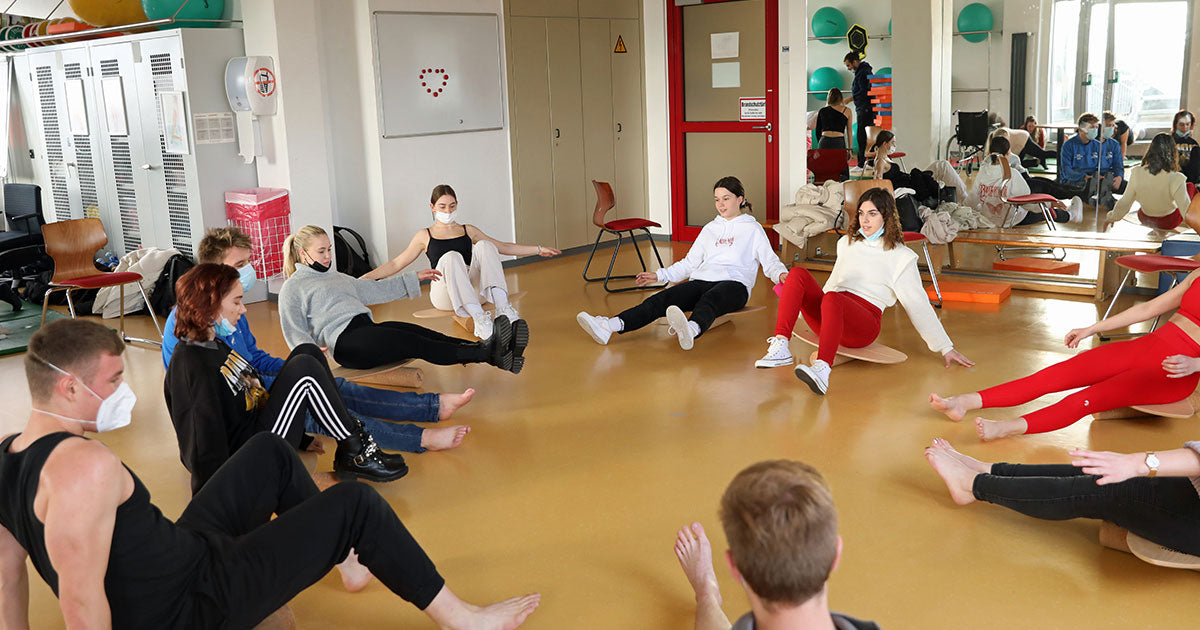conducted by Prof Dr. Joachim Conrad,
DIPLOMA University & BBS,
Study Center Mannheim
Our wahu Balance Board was actually the focus of a scientific study conducted by Prof. Dr. Joachim Conrad at the Mannheim Study Center of DIPLOMA University & BBS. The study investigated to what extent balance boarding had an effect on the athletic development of the test persons. The result? We are happy to tell you!

What are the benefits of balance board training?
For many, the fun factor of balance boarding is enough anyway. But training on the board can bring much more. Prof. Dr. Joachim Conrad wanted to find out exactly what with his study. Does boarding increase the sense of balance? Does it have a positive effect on posture? And does it perhaps even push athletic development in general? In order to obtain valid answers to these questions, a scientific setting was set up that provided all test subjects with uniform training conditions. For this reason, all test persons received the same training device - our wahu Balance Board.
Setting of the study
Before the start of the study, a safety training was conducted in order to minimize the risk of falling. Then we started. The sequence of the training session was precisely defined in advance and repeated exactly the same way a total of six times:
- Warm-up: 2 minutes, with various warm-up exercises.
- 15 seconds break
- seven exercises, each with a 15-second break: Transverse stand, longitudinal stand, lunge, plank, core, super(wo)man, forearm support
- 15 seconds rest
- cool-down: 2 minutes, with various stretching and loosening exercises
Before the start of the training, the Y-Balance test was used to determine the anterior and posterior the values for the anterior, posterolateral and posteromedial movement excursion of both extremities were measured. This test is therefore very well suited to test the existing balance, and to draw a comparison after the six training sessions. Since our test subjects were all already in very good shape beforehand, there were no significant improvements to be seen here. But so much for the first part of the study.

Survey of the test subjects
In addition, the pure measurement data on the sense of balance were supplemented was supplemented by a survey of the test subjects. This is where the subjective assessment comes into play - and, of course, the fun of it. Questions like
- Did you enjoy the exercises?
- How much did your balance improve?
- Has your body awareness improved?
were all given high scores on an evaluation scale of 1-10. Overall, all participants agreed at the end of the six training sessions.

"The fun effect and the feeling of being able to stand freely is mega cool. Especially the free exercises, after a short training, were rad in the group. A nice challenge so in the theoretical lessons."
Conclusion
The study has confirmed that the training on our Balance Board is extremely fun, promotes the desire for (more) movement and thus naturally also contributes to an improvement of the own body feeling. Everyone knows this. If you enjoy something, then you like to do it and do it often... and learns thereby also fast in addition. So how does it look like: Will you soon be standing on the balance board?



